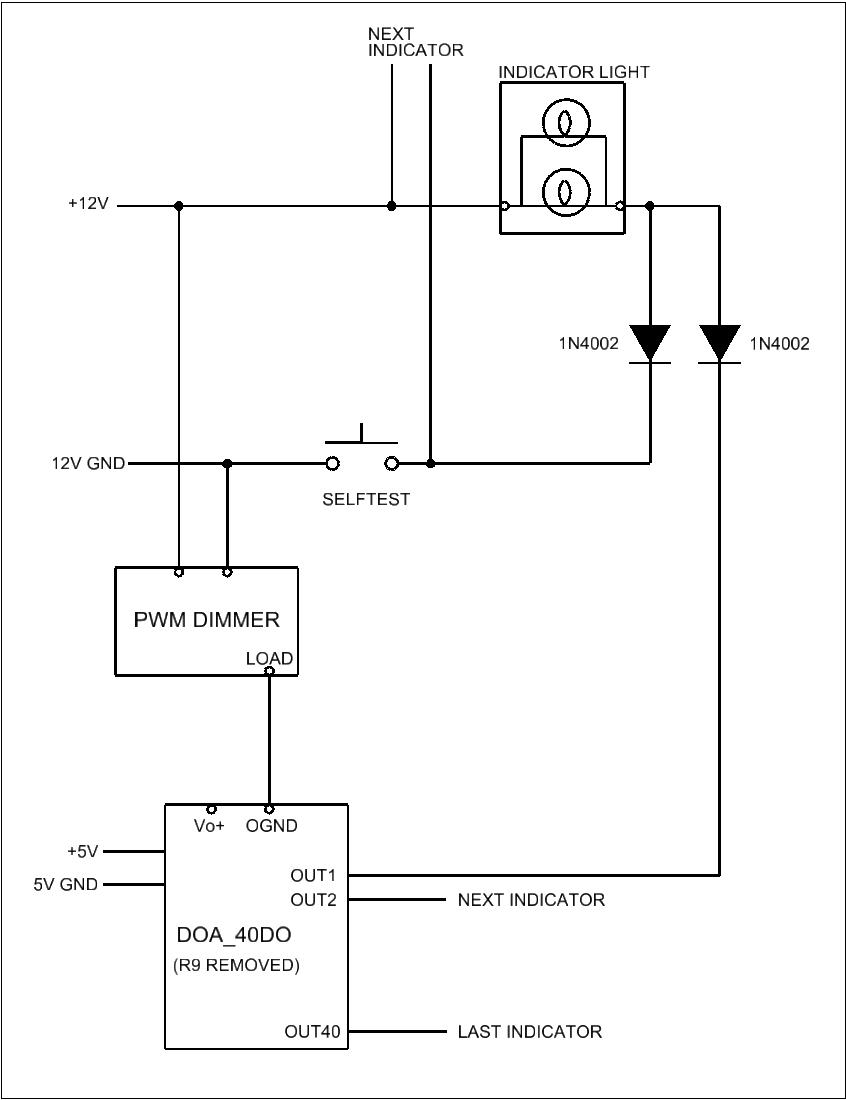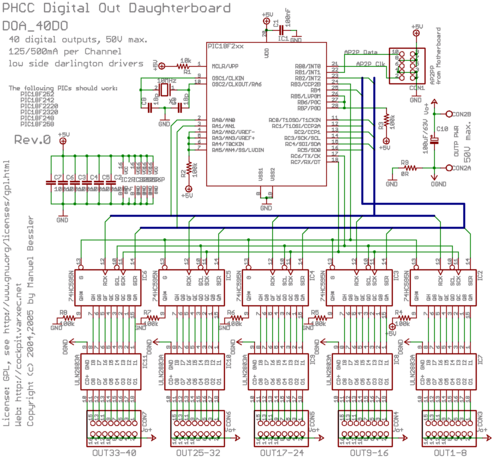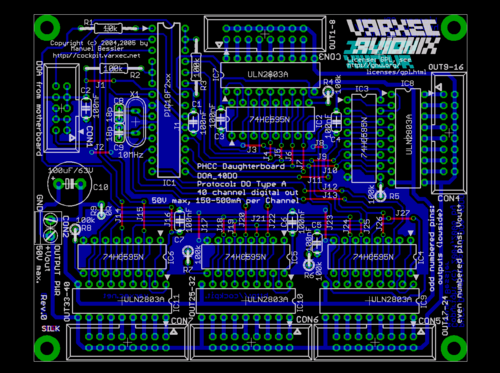Difference between revisions of "DOA 40DO"
From PHCC
(New page: ==== DOA_40DO ==== 40 Channel Digital Output Daughterboard. '''Features:''' *40 channels *up to 125mA per channel (continous) *up to 50V *open collector outputs (sinking action) *use...) |
|||
| Line 13: | Line 13: | ||
[[Image:PHCC_DOA_40DO_rev0_sch.png|thumb|center|500px|Rev.0 Schematic]]<BR> | [[Image:PHCC_DOA_40DO_rev0_sch.png|thumb|center|500px|Rev.0 Schematic]]<BR> | ||
[[Image:PHCC_DOA_40DO_rev0_brd.png|thumb|center|500px|Rev.0 Layout]]<BR> | [[Image:PHCC_DOA_40DO_rev0_brd.png|thumb|center|500px|Rev.0 Layout]]<BR> | ||
| + | |||
| + | ===== Interconnection ===== | ||
| + | Typical connection for 12 volt indicators with selftest | ||
| + | [[Image:INDICATOR THEORY-0.jpg]] | ||
===== A note to DIYers ===== | ===== A note to DIYers ===== | ||
Revision as of 14:17, 19 December 2008
Contents
DOA_40DO
40 Channel Digital Output Daughterboard.
Features:
- 40 channels
- up to 125mA per channel (continous)
- up to 50V
- open collector outputs (sinking action)
- uses DOA protocol
Schematic and Layout
Interconnection
Typical connection for 12 volt indicators with selftest

A note to DIYers
This board is so far one of the hardest for DIY. Lots of thin traces with spacings of often just 8mils. In addition, several wire bridges (for single-sided boards) / top side traces (for double-sided boards) are very close to IC pads. These facts make this particular board a challenge for people who are not regularly etching PCBs at home. For details, go ask on the PHCC forum.
Bill of Materials
see download page.
Eagle and Gerber files
see download page.

